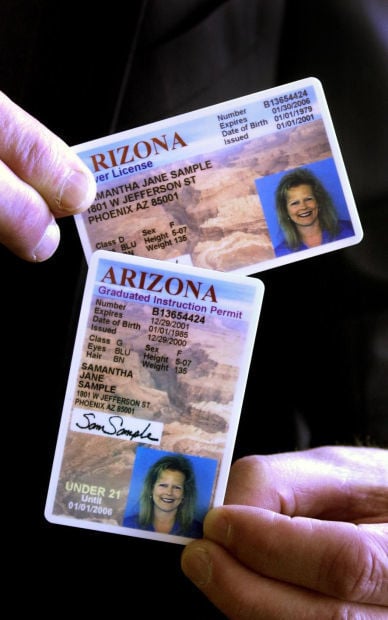PHOENIX — After fighting the issue in court for years, Gov. Doug Ducey has agreed to issue driver’s licenses to all deferred-action recipients.
In an announcement Wednesday, the state Department of Transportation said anyone who has an Employment Authorization Card issued by the Department of Homeland Security is entitled to a state license to operate a motor vehicle.
The change is immediate.
The action came as Ducey gave up trying to appeal a 2018 ruling by U.S. District Judge David Campbell that the state was required to issue licenses to everyone the federal government has allowed to remain in this country.
It also came years after the U.S. Supreme Court rejected the state’s ill-fated bid to keep “dreamers” — those brought to the United States illegally as children — from being licensed.
But Ducey insisted the state was not obligated to issue licenses to those the federal government placed in other deferred-action programs, like the victims of domestic violence.
Gubernatorial spokesman Patrick Ptak declined to comment, saying decisions on the lawsuit were being made by the state’s Department of Transportation. But Ducey had previously said he wanted to pursue the litigation, even after a federal judge ruled against him.
That decision will cost taxpayers.
ADOT reports the state’s legal expenses to date of nearly $370,000.
And that doesn’t count what the state may owe the National Immigration Law Center, which filed the lawsuit.
The case is a spinoff of the original lawsuit filed against the state after then-Gov. Jan Brewer directed ADOT not to issue licenses to those who were part of the Deferred Action for Childhood Arrivals, or DACA, program enacted by the Obama administration.
Brewer argued that DACA is merely an administrative decision not to deport the dreamers. And she said DACA recipients do not meet the requirements of a 1996 state law that said licenses are available only to those whose presence in the country is “authorized by federal law.”
A federal appeals court quashed the policy, saying only the federal government can decide who is in this country legally.
One claim in that lawsuit was the state was not being fair, as it had been providing licenses for years to those in other deferred-action programs. So in its bid to justify denying licenses to dreamers, the state stopped issuing licenses to those in the other groups.
The appellate ruling ordering the state to license dreamers did not help the other deferred-action recipients, as they were not plaintiffs in the original lawsuit, resulting in this 2016 lawsuit.
In his ruling last year, U.S. District Judge David Campbell was critical of the state for changing its policies in an attempt at first to justify denying licenses to dreamers and, when that didn’t work, to deny licenses to other deferred-action recipients.
In both cases, he said, the state was trying to decide, illegally, that it could determine who is in this country legally.





